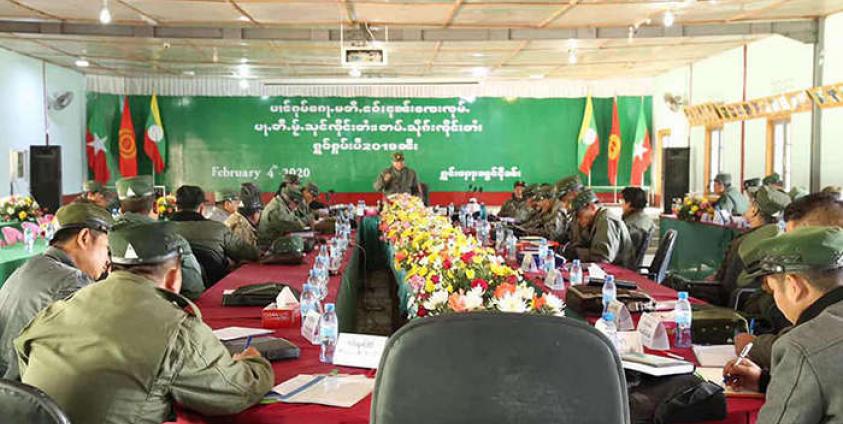Sai YordKham — If the Burmese government invites all the member groups of an ethnic alliance bloc, the Shan State Progressive Party/Shan State Army (SSPP/SSA) has indicated that it will attend the 21st Century Panglong Conference.
Although the Shan ethnic armed organization (EAOs) “doesn’t expect much” from the upcoming conference, SSPP/SSA spokesperson Maj Sao Than Aung said if all the groups in the Federal Political Negotiation and Consultative Committee (FPNCC) can attend it will send representatives to long-delayed peace talks.
FPNCC was formed by SSPP/SSA and other EAOs in northern Shan State to negotiate with the government on matters of peace and security. Although none of its members have signed the Nationwide Ceasefire Agreement (NCA), many have long-standing peace treaties with the government and Tatmadaw. Yet, despite this, most are still fighting with the Burma Army.
Plans to resume the 21st Century Panglong Conference–the third one occurred in 2019–began in July, when the government met with NCA signatories in Naypyitaw, the nation’s capital. At which point, some NCA signatories said they wanted all EAOs to join.
Until now, the government has not extended an invitation to FPNCC, led by the United Wa State Army (UWSA), the second most powerful armed group in the country, after the Burma Army.
The peace conference was scheduled for the second week of August, but reconvened for 19 to 21.
The outcome people want from the conference is “honesty and a true commitment to restoring peace,” said Sai Harn, chair of Tai Youth Organization for northern Shan State.
Locals are concerned after the Burma Army has been pouring troops into northern Shan State, leading to hostilities with several NCA signatories and non-NCA signatories, including SSPP/SSA. Some say Tatmadaw wants to threaten EAOs before the peace conference. Others are concerned that polling for the 2020 general election on November 8 will be suspended if fighting continues.
Last year, the fourth 21st Century Panglong Conference was delayed after negotiations on disarmament, non-secession of the Union and the formation of a national army led to a deadlock.







